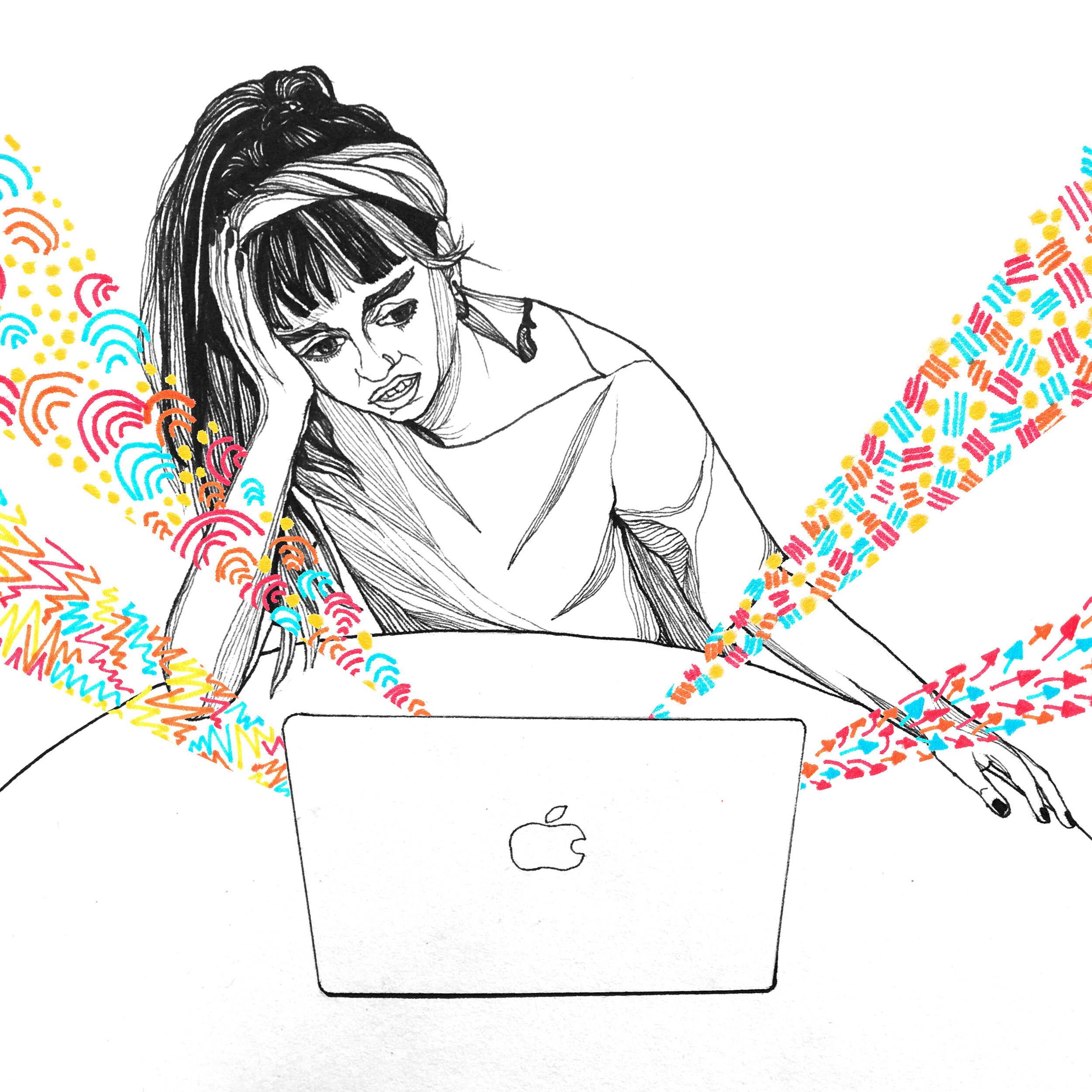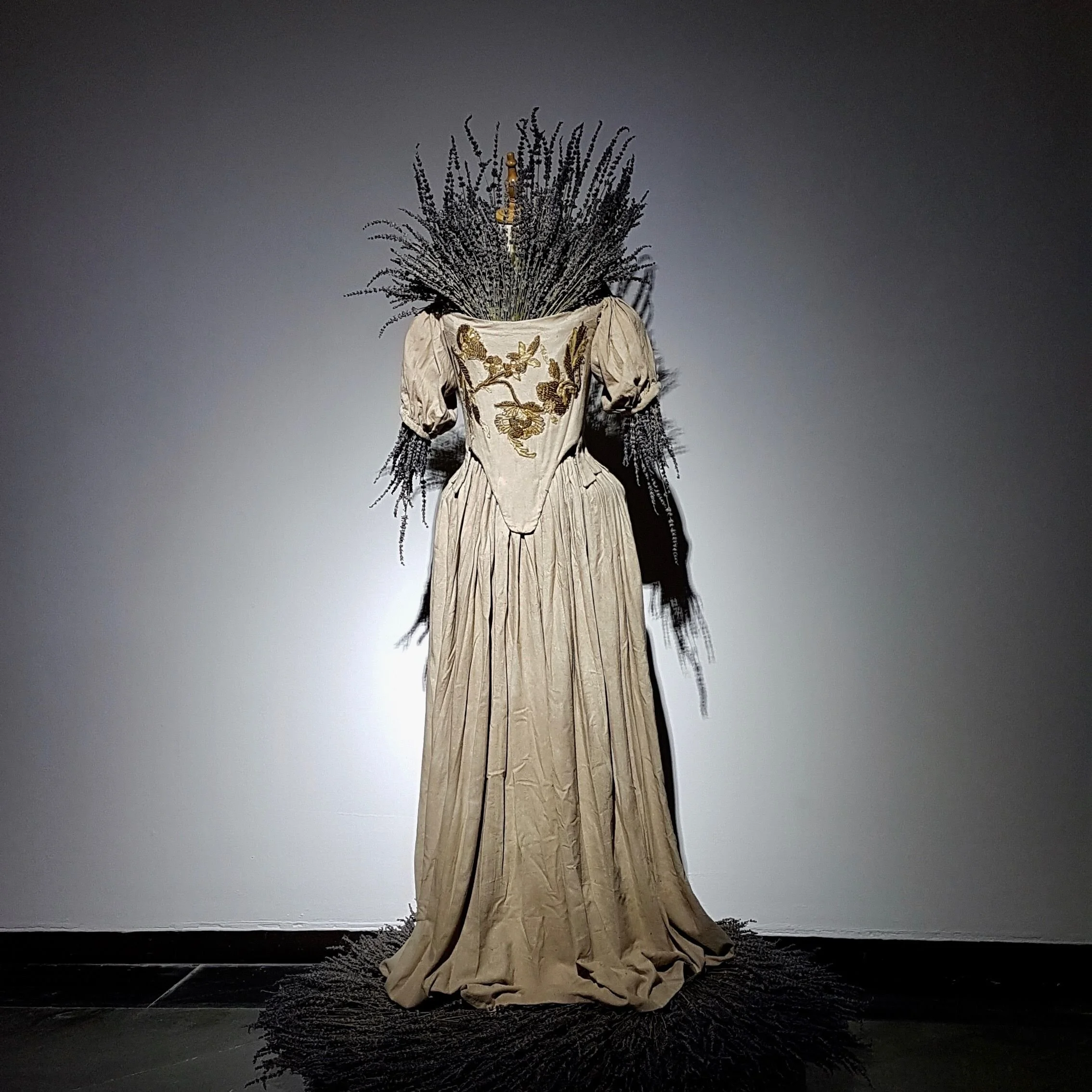COVID: *A* Mirror for Autism
Routine is bedrock. Routine is reliving your past every day. Routine enables planning. Routine is grounding. Calming. Answers in a world made of chaos and rules in an undecodable language. Routine gets you not just through, but from A to B. Routine is left foot right foot left foot right foot left foot right.
Now that everyone’s at home and you have all this time on your hands…
~the opening of every new offering, webinar, training, Facebook Live, podcast, YouTube, etc. since March 2020
I register for everything that comes into my inbox.
Maybe this webinar will have the missing piece to my underperforming life. Maybe someone on this call will have—or be—my missing piece. If I’m not live, how will I get my questions answered? Two Zoom sessions that I simply must attend start 15 minutes apart from each other and both go until an hour past the bedtime I had spent years establishing.
Finding Love in a Pandemic begins first. I show up with an open heart, blissfully off to my first breakout room after Ken’s short teaching, ready to tackle the discussion prompt he gave us about how a person’s tolerance for vulnerability might relate to their ability to partner.
“I appreciate Brené Brown’s work a lot here,” I start after almost a minute of silence, the pressure of the time limit pushing my voice up half an octave. “She wrote something in Daring Greatly that made me go, ‘you know’, I think blame and vulnerability have an inverse relationship.” My nerves snag on the impulse, on the one hand, to provide a more robust answer, and, on the other, the socially expected space for others to speak lest you reveal yourself to be an unfeeling monster who has no empathy.
“Have you tried Match, Karen? Didn’t you say during intros you’d starting dating again after getting divorced six years ago?”
“Ugh,” Karen’s groan screeches through my microphone and my knees buckle. But all the potential embarrassment Karen might have felt rushes to my face—I have to make up for being a monster somehow—so fast there have to be burst capillaries; my face has got to be cranberry. “I’ll just say that it’s better than OkCupid and leave it at that.”
“I haven’t had any luck on either of those sites or any other.” Jen glares into the camera.
Reminder: First Quarantine Write-In—Zoom pops up on my phone just as the breakout room on my computer ends. A grid of over 100 strangers fills my computer screen just as Lily from the Write In begins welcoming writers “and those who didn’t know they wanted to write until sports, restaurants and bars were taken away” on my phone.
“Hey,” says Ken, the host of Finding Love, “I resemble that remark.” There is much laughter, which I contributed to since I am on camera in two places even though I don’t know what’s funny. “Seriously, though, it sounds like some of the small groups went deep.” He voice flowed into my ear, coating it with calm that didn’t make it all the way to my hands shaking over my keyboard as I tap all combination of buttons in attempt to mute only my side of the conversation.
“We want to ensure that, in dating, your partner earns the depth you give them,” Ken says in response to one of the Love attendees.
“You’ll have 15 minutes to write. Then we’ll come back to discuss. Pick one of the following prompts: 1) Interview yourself -------- as yourself in ten years. 2) List things you’ll miss -------------- quarantine 3) List things you don’t ------------ time before. Don’t stop or pause or pick up your pen.” Lily salutes us like we’re soldiers on Normandy.
“We can get --------- to a feeling of anticipation rather than the here-and-now person. ------------ this by pacing.” Ken sips his tea with such enjoyment my jaw tingles with the sweet sting of cinnamon.
“Ready, go.” Lily salutes us again. The Write-In screen turns to large, searing-blue numbers. My older self feels tight in the gut when she thinks of interviewing me. She doesn’t have any questions. She knows more about me than I do. She already knows what I will do. She already knows what happened. It’s possible, she thinks, I misunderstood the question. She just wants to move on. “I hope you do before you get to me.”
She doesn’t say anything else. She doesn’t want to say anything else. It seems like she’s no longer afraid of being laughed at. She doesn’t think she’s a monster. She doesn’t believe that she’s inferior anymore.
“Journaling is great, turning on your camera is brave, being vulnerable is intimate. But I think it’s even braver not to whine. To look for gold when everyone is complaining. I’m kind of calling out the ladies from the previous breakout session. And also, kudos to the prompts that redirect us from the smorgasbord of negativity.”
I was unmuted for both full groups. While the swoosh of pins and needles, the kind you get right after you trip but before you hit the ground, still comes, this—all of it, the missing questions, the fractured attention, the social awkwardness, the depth of longing for connection tug-of-warring with my impulse to mirror/mask my weirdness/pass for normal, even the social distancing I wouldn’t have chosen—is no different than a normal pre-pandemic day.
I was already doing everything out of fear. I kept in touch with my friends so I didn’t die alone. I created an exercise routine so intense I could water a garden with merely a stroll following my workout out of fear of getting cancer. I intermittently fasted every day so I didn’t get metabolic disease. I budgeted to the fraction of a penny so I didn’t freeze to death under a bridge. I hoarded podcasts, eBooks, online summits, interviews and at one point had three coaches at a time and check in with everyone who could possibly have an opinion on relationships and love and community so I don’t die alone.
Essentially, I am a catastrophist. The worst pandemic in 100 years is an excellent time to be a catastrophist.
I am also basically a housecat: I strain to be around people so I’m not alone. I strain when I’m around people and am alone anyway. So I couldn’t be more fine with being ordered (instead of ridiculed) to essentially be who I am.
Still, being alone in my room while many other people can see and hear me registers in my guts and the space around my heart and deep in my low lungs the way standing in a crowded room sobbing while no one looks up would. It feels like gaslighting, but like I am doing it to myself: the experience my nervous system is having is one of severe isolation—lack of physical touch hurts in the same way that too much sight, sound, taste, smell, touch does. Both are extremes. My visual and auditory systems simultaneously tell me I’m not alone. Processing sensory input is sometimes too much in and of itself; add a massive discrepancy among such input, and you can almost smell the singed-ness of fried neurons.
Maybe the only thing that’s different is that I can now see myself when I’m talking. The stereotype that people with autism can’t read faces, at least in this instance, turns out to be false.







